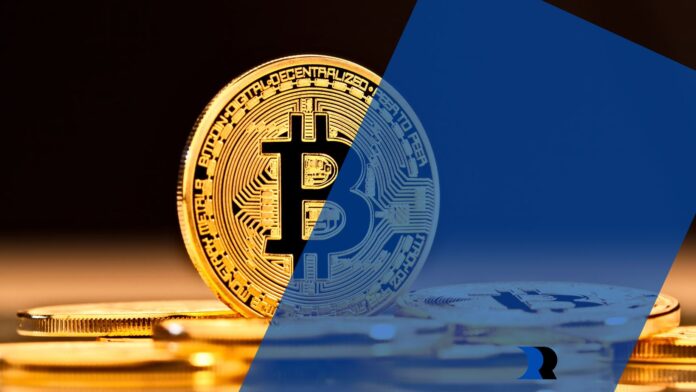In the intricate domain of Bitcoin, the mining process stands as a fundamental mechanism, introducing new units into circulation and serving as a cornerstone for the seamless operation of the entire network. Beyond the mere creation of new tokens, its significance extends to fortifying the network by validating transactions and incorporating them into the blockchain, maintaining the integrity and permanence of the distributed ledger. Reflecting on the historical backdrop, the evolution of Bitcoin mining narrates a transformative journey, from the simplicity of solo mining with basic CPUs to the contemporary dominance of specialized hardware. Besides mining, investing in Bitcoin is a must to diversify! Furthermore, https://swapitor.com/ can help you in understanding about investing.
How Bitcoin Mining Works
Blockchain Basics
The blockchain, a decentralized ledger, records all Bitcoin transactions. Miners group these transactions into blocks, forming a cryptographically secured chain.
Proof of Work (PoW) Algorithm
Bitcoin relies on the PoW algorithm to secure its network. Miners compete to solve complex mathematical puzzles, with the first to solve it validating and adding a new block to the blockchain.
Mining Hardware: CPUs, GPUs, ASICs
The evolution of mining hardware, from general-purpose CPUs and GPUs to the dominance of Application-Specific Integrated Circuits (ASICs), has dramatically increased the computational power devoted to mining.
Mining Pools: Collaboration in the Decentralized Network
Mining pools have emerged as a practical solution to the increasing difficulty of solving PoW puzzles individually. Miners combine their computational power, share rewards, and collectively contribute to the network’s security.
Setting Up Your Mining Operation
Hardware Requirements
Choosing the Right Mining Rig
Selecting an appropriate mining rig involves considering the hash rate, energy efficiency, and initial investment costs.
Power Consumption and Energy Efficiency
Mining operations consume significant amounts of electricity. Optimal hardware choices balance computational power with energy efficiency.
Software and Configuration
Mining Software Options
Different mining software caters to various hardware configurations. Choosing the right software is crucial for efficiency and compatibility.
Wallets and Security Considerations
Securing mined bitcoins requires a reliable wallet.

Miners must prioritize security measures to protect their earnings.
The Mining Process
Block Discovery and Verification
Transaction Validation
Miners validate transactions by ensuring they adhere to the network’s rules, preventing fraudulent activities.
Solving Complex Mathematical Puzzles
Successful miners solve intricate mathematical puzzles, proving their computational effort and securing the network.
Block Reward and Transaction Fees
Bitcoin Creation
Mining rewards include newly created bitcoins and transaction fees, which incentivize miners to contribute to the network’s security.
Economic Incentives for Miners
Understanding the economic aspects of mining, including the halving events, is essential for miners to optimize their strategies.
Challenges and Risks in Bitcoin Mining
Energy Consumption and Environmental Concerns
Mining is energy-intensive, raising environmental concerns. Addressing sustainability is crucial for Bitcoin’s long-term viability.
Regulatory Challenges
Regulatory landscapes vary globally, posing challenges for miners.

Navigating these complexities is essential to ensure compliance and longevity.
Technological Advances and Mining Difficulty
Continuous technological advancements impact mining difficulty, requiring miners to stay updated and adapt to maintain profitability.
Future Trends in Bitcoin Mining
Shifting Landscape: Proof of Stake (PoS) vs. PoW
The ongoing debate between PoW and PoS raises questions about the future consensus mechanisms and their impact on mining.
Sustainable Mining Practices
Innovations in sustainable mining practices, such as the use of renewable energy, can address environmental concerns and contribute to the industry’s long-term viability.
Integration of Smart Contracts and Layer 2 Solutions
Exploring the integration of smart contracts and Layer 2 solutions can enhance the functionality of the Bitcoin network and open new avenues for miners.
Mining Beyond Bitcoin
Overview of Altcoin Mining
The world of cryptocurrency extends beyond Bitcoin, with various altcoins offering alternative mining opportunities.
Prominent Altcoins and Their Mining Algorithms
Understanding the mining algorithms of popular altcoins is crucial for diversifying mining operations.
Diversification Strategies for Miners
Exploring diverse cryptocurrencies and mining strategies can mitigate risks and enhance overall mining efficiency.
Conclusion
In conclusion, a retrospective overview of Bitcoin mining unveils its historical evolution, challenges, and prospective trends. The process has undergone a remarkable journey from its nascent stages to its current complexities. The ongoing evolution of Bitcoin mining underscores its dynamic nature, demanding constant vigilance and adaptability from miners to navigate the ever-shifting landscape. This adaptability is paramount in a realm where change is the only constant. Looking ahead, the future of cryptocurrency mining holds significant implications for the broader domain of decentralized finance. It serves as a critical pillar, shaping the trajectory of a decentralized financial landscape. As the ecosystem matures, the role of cryptocurrency mining in fostering decentralization and blockchain security becomes increasingly pivotal, paving the way for a transformative influence on the financial paradigms of tomorrow.


